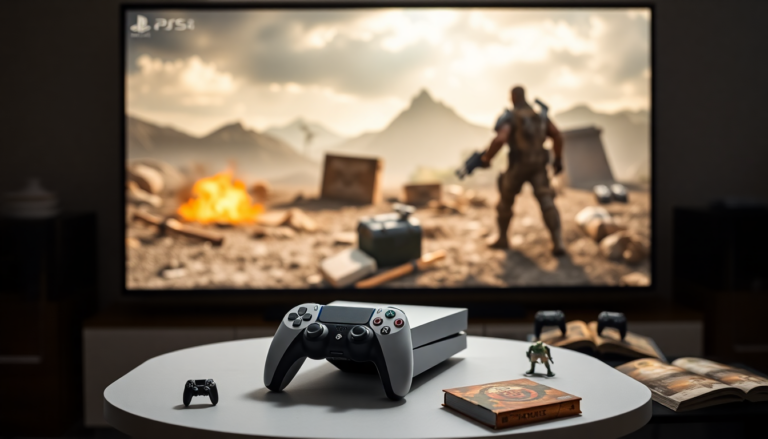Argomenti trattati
The release of Gears of War: Reloaded on the PlayStation 5 has marked a significant milestone in the gaming community, especially for fans who have long associated this franchise exclusively with Xbox. As a remaster of the original game, it not only taps into a wellspring of nostalgia but also prompts fascinating questions about the future of gaming exclusivity. So, what does this mean for players and the industry at large? Let’s dive into the performance of the game on PS5, its reception, and the broader implications of its multiplatform availability.
Understanding the transition: Gears of War’s journey to PlayStation
For many gamers, the name Gears of War is almost synonymous with Xbox. This franchise has been a cornerstone of Microsoft’s gaming strategy, and its debut on PlayStation is a monumental shift in the industry landscape. With the remastered version, Gears of War: Reloaded, now available on Sony consoles, we’re witnessing the end of its exclusivity. This transition opens the doors for a wider audience to experience a franchise that has defined countless gaming moments over the years. Isn’t it exciting to think about new players discovering the series?
Upon launching Gears of War: Reloaded on the PS5, any initial concerns about whether the game could live up to its legacy quickly faded. The campaign offers a **robust gameplay experience** that stands tall against modern shooters, showcasing the enduring appeal of its mechanics and storytelling. Players can expect smooth performance, as the game runs at an impressive **60 frames per second** and boasts enhanced **4K resolution**. Plus, the absence of loading screens only deepens immersion, allowing players to dive straight into the action without interruption. Who wouldn’t love that?
Moreover, the integration of the DualSense controller features—like adaptive triggers and haptic feedback—adds a new layer of engagement, making gunfire feel incredibly tangible and enhancing the overall experience. This is a testament to how well the game has been optimized for Sony’s platform, successfully dispelling any fears of a subpar port.
Performance insights and player experience
When it comes to performance, Gears of War: Reloaded has been met with enthusiastic praise. Players have noted the fluidity and responsiveness of the gameplay, and I can personally attest that my experience on the PS5 was smooth as silk, free from any performance issues. The graphical enhancements breathe new life into the environments and character models, ensuring that even though the game is nearly two decades old, it still looks visually stunning. Isn’t it amazing how technology can revitalize our beloved classics?
Additionally, the cross-play and cross-progression features allow players on different platforms—PC and Xbox Series X—to engage together, fostering a more interconnected gaming community. This seamless ability to play across devices underscores the potential benefits of a multiplatform approach in gaming, enhancing player engagement and community building. Have we reached a point where our gaming experiences can transcend platforms?
However, this shift towards multiplatform releases raises important questions about the future of console exclusivity. While the availability of Gears of War: Reloaded on PlayStation is a groundbreaking development, it also signals a shift in Microsoft’s strategy. The implications of this transition resonate beyond just this title; they suggest a future where the lines between console exclusives and shared experiences become increasingly blurred. What does this mean for the identity of consoles moving forward?
Looking forward: The future of gaming exclusivity
As we ponder the future of Xbox and its strategy of expanding its games to multiple platforms, it’s crucial to consider the long-term impacts this could have on console identity. While there are valid concerns regarding the potential dilution of Xbox’s brand, the immediate focus should remain on the quality and accessibility of games like Gears of War: Reloaded.
Ultimately, the key takeaway is that despite the challenges presented by multiplatform releases, the enjoyment of the game remains paramount. When engaged in gameplay, the historical context of console rivalry fades away, allowing players to immerse themselves fully in the experience. For now, let’s celebrate the arrival of Gears of War: Reloaded on PlayStation, recognizing it as a fantastic opportunity for new players to experience a classic that has significantly shaped the gaming industry.
In conclusion, the debut of Gears of War: Reloaded on PS5 not only introduces a beloved franchise to a broader audience but also challenges traditional notions of exclusivity in gaming. As players, we should prioritize the joy of gaming, cherishing the experiences that titles like Gears of War bring, regardless of the platform they are on. Isn’t that what gaming is all about?

